25 jun 20
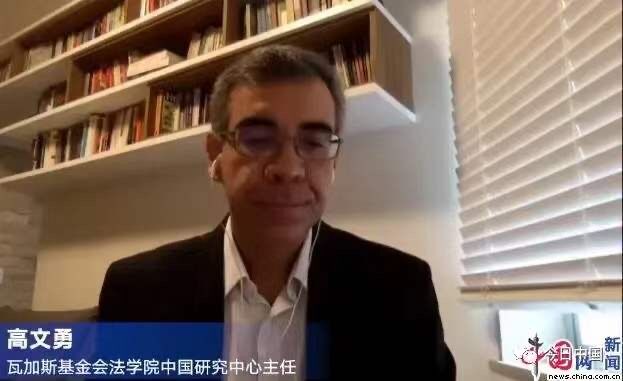
COVID-19 is being considered one of the most significant challenges for all nations since the end of World War II by several international authorities and national governments. This has been the opinion of German Chancellor Angela Merkel, President of France Emmanuel Macron, as well as many other leaders, officials, and heads of various states. The Chinese government has considered this epidemic the most significant and most challenging public health emergency in the country since the founding of the People’s Republic of China in 1949. This is the reason why the Chinese government considered combating COVID-19 a test for the state system and the governance capacity of the country with almost 1.4 billion people. And it seems likely that the fight against COVID-19 will be a great test not only for China but for all states and the various political systems in the world.
Since China was the first country to face the epidemic outbreak, it has become a point of reference and an ally in the international fight against COVID-19. The country has shown the capacity to take quick and effective measures which can be grouped into three categories: Firstly, measures to contain the spread of the virus to halt the increase in infections by isolating the city of Wuhan with more than 10 million people, and ordering on January 29 that all provincial-level regions cancel mass events, suspend long-distance bus travel, and close tourist spots. Secondly, measures for provision of large-scale medical facilities and services, by building hospitals in a short time and sending medical teams of more than 42,000 members from various parts of the country to Hubei. Thirdly, accountability measures, such as replacing Party chiefs in Hubei Province and Wuhan city and firing local officials who have been slow in performing their duties in identifying infection cases and controlling the virus.
China has also acted responsibly on an international scale to prevent the spread of the virus. As a member of the World Health Organization (WHO), it opened a channel of dialogue with the director-general of the international organization to discuss the actions needed for global management to fight the epidemic, in addition to donating US $20 million to WHO. In addition, China has also acted quickly to provide medical aids to countries in need. China provided medical supplies and virus test kits to Italy, the Republic of Korea, and Japan. China has also sent experts to Iran, Iraq, and Italy to collaborate in efforts to contain the epidemic. These diplomatic actions are perhaps the concrete expression of the concept of “a community with a shared future for mankind” conceived by Chinese President Xi Jinping.
25 jun 20
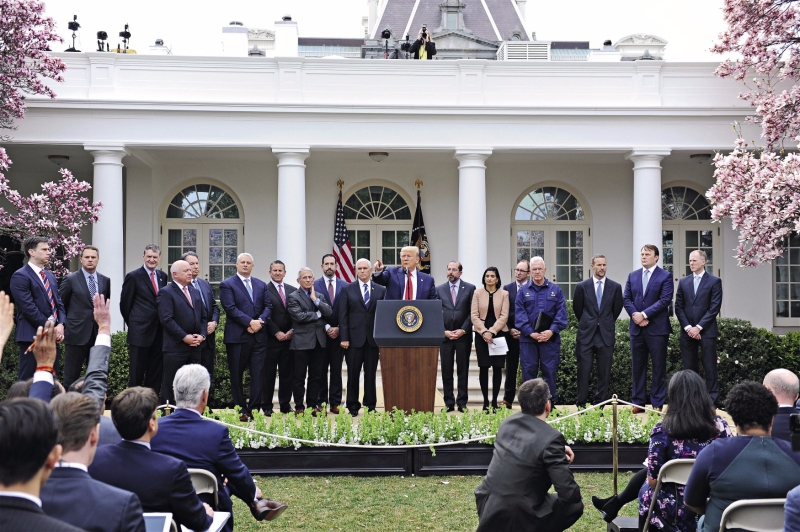
A recent U.S. attack against China, fueled by President Donald Trump’s belligerent rhetoric, uses the law as a weapon. Trump blames China for the novel coronavirus pandemic by calling COVID-19 “Chinese virus.” In doing so, he assumed to be freed from all risks and responsibilities, and encouraged Sinophobia in his country, where the Chinese represent the second-largest immigrant group after the Mexicans. It was expected that the “America First” doctrine would lead to a protectionism foreign policy, even unilateralist policy in some issues. However, such doctrine should not be implemented without considering the minimum standards of good diplomacy and international law. Eventually, the U.S. will push the global system towards an era of “Vale Tudo” (a Portuguese term which refers to an unarmed, full-contact combat sport with relatively few rules), and without the stability derived from respecting the rules, the world will be insecure and could end up in a war.
At this moment, the only global war worth fighting and winning is the one against COVID-19. If the battle was to depend on the U.S., it would take a back seat to Trump’s political interests. His rhetoric against China has become increasingly aggressive as the pandemic harms the American economy, which threatens his re-election plans.
25 jun 20
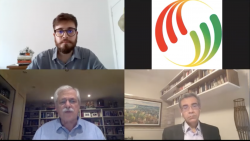
No dia 22 de junho participei deste webinar promovido pelo Conselho Empresarial Brasil-China (CEBC) que teve como tema as decisões tomadas pelo governo chinês durante a Sessão da Assembleia Popular Nacional neste ano de 2020, em meio à pandemia. O pesquisador do CEBC Tulio Cariello faz um ótimo balanço das principais decisões e coube a mim abordar o significado da aprovação do primeiro Código Civil da China. O vídeo integral do webinar está disponível clicando aqui.
09 jun 20
Compartilho entrevista que dei para a CCTV sobre as Duas Sessões e as medidas tomadas pela China para garantir o desenvolvimento econômico das empresas e promover a recuperação econômica do país no cenário pós-pandemia. A matéria está em chinês. Link para a matéria com vídeo:
09 jun 20
Compartilho o link da palestra do Embaixador da China, Yang Wanming, que se realizou na sexta-feira dia 05 de junho de 2020 e que tratou das diretrizes aprovadas na Assembleia Popular Nacional da China e da parceria sino-brasileira no pós pandemia.
Tive a honra de ser um dos quatro comentadores convidados (faço um breve comentário aos 51 minutos). Além de mim, foram convidados como comentadores o José Pio Borges (CEBRI), Ivan Oliveira (IPEA) e o Celio Hiratuka (Unicamp). Celio representa, neste ano de 2020, a Rede Brasileira de Estudos sobre a China (RBChina). Eu fui um dos fundadores da RBChina que reúne quase uma centena de pesquisadores, professores, jornalistas, diplomatas etc. e que é representada pelo professor e/ou instituição responsável pela organização do encontro no ano correspondente. Este ano deveria ser em Recife mas a pandemia suspendeu a iniciativa. Clique aqui para assistir a palestra do Embaixador.
09 jun 20
 Hoje participei de um Webinar em torno da obra “PANDEMIAS E PANDEMÔNIOS NO BRASIL” organizada pelos professores Rogério Dultra e Cristiane Brandão. O livro está disponível gratuitamente no segundo link abaixo. No webinar tratei do meu artigo que tem como título “O uso político da pandemia e a crise diplomática com a China”. Minha participação se dá aos 13min30s e a 1h de vídeo.
Hoje participei de um Webinar em torno da obra “PANDEMIAS E PANDEMÔNIOS NO BRASIL” organizada pelos professores Rogério Dultra e Cristiane Brandão. O livro está disponível gratuitamente no segundo link abaixo. No webinar tratei do meu artigo que tem como título “O uso político da pandemia e a crise diplomática com a China”. Minha participação se dá aos 13min30s e a 1h de vídeo.
Link para assistir o webinar: https://www.youtube.com/watch?v=g6MOgAWjcYI&feature=youtu.be
Link para baixar o conteúdo integral do livro que teve uma belíssima edição:
https://drive.google.com/file/d/15hUidT9R1DNpC8Pl_i7ksH1eIiAxLS4x/view
27 maio 20
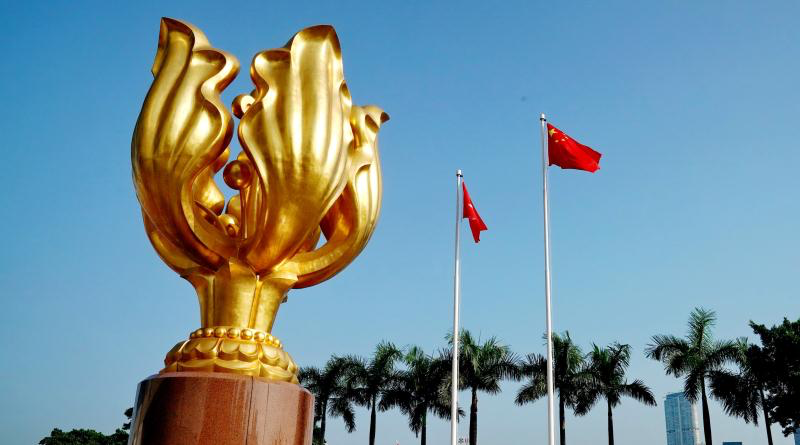
On May 22, a draft decision on establishing and improving the legal system and enforcement mechanisms for the Hong Kong Special Administrative Region (HKSAR) to safeguard national security was submitted to the National People’s Congress, China’s national legislature, for deliberation.
From the point of view of territorial integrity, the draft decision is a sovereign prerogative. The aforementioned draft is also in line with Article 23 of the Basic Law of the HKSAR. According to the law, HKSAR shall enact laws on its own to prohibit any act of treason, secession, subversion against the Central People’s Government, or to prohibit foreign political organizations or bodies from conducting political activities in the Region.
The primary condition for the international community to preserve international peace and security is respect of the principle of state sovereignty. From this principle arise many others that structure the system of state and international laws. One is the principle of non-external intervention in domestic affairs that guarantees each country and its people the right to organize themselves politically and economically according to their values. The only possibility of external intervention in a country that is supported by international law is that one determined by the UN Security Council, of which China is a permanent member.
24 maio 20
Currently, many analysts are discussing what the world will become after the COVID-19 pandemic. And opinions are polarized on social networks and in media reports. Under the shadow of uncertainty, we seek answers. From the perspective of the global economy, the data already show a substantial drop in growth forecasts for this year. In this scenario, countries are deliberating measures to be taken to cushion the negative impact of the pandemic on the national economy, employment, and people’s life. But is it possible to resume the path of prosperity without action at the national level being followed by a coordinated global movement as well?
Two contradictory narratives dispute the answer to that question. One points out that the pandemic, as a global public health crisis, reinforces the importance of multilateralism and international organizations, such as the World Health Organization (WHO). The other narrative defends the opposite. It is supported by countries that have taken a more unilateralist stance towards the world. That is regrettably the case of the U.S.A.
24 maio 20
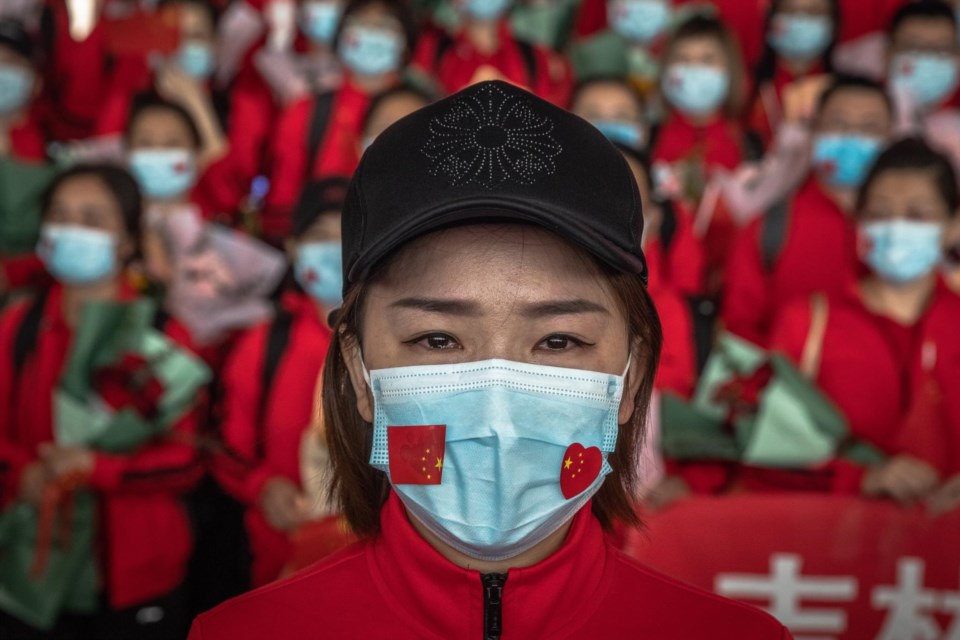
本文作者高文勇(Evandro Menezes de Carvalho)是巴西瓦加斯基金会(Getulio Vargas Foundation)中国研究中心主任。本文摘自其发表在China Daily上的一篇文章。
事实证明,中国抗击新冠肺炎疫情的努力已经取得成效。尽管如此,其他国家仍有人认为中国花费了过长时间才采取行动,但这并不完全正确。我们必须明白,当一种新的流行病威胁出现时,人们难以立即意识到这种危险的发生。当今是医学的时代,也是政治的时代。
虽然此次疫情报告最早发生在湖北省武汉市,但实际上该市的公共卫生委员会在12月31日就向世界卫生组织发出了警报,当时该市只有27例感染病例。1月中旬,中央政府开始采取措施,遏制病毒的传播,开展大规模的医疗保健,还制定规定来追究失职官员的责任。
3月11日,世卫组织总干事谭德塞表示,中国的新型冠状病毒病例将大幅下降。他认为,这是一个“令人印象深刻”的结果。这种成功在很大程度上要归功于中国的治理模式和中国人民。
在国内抗击疫情的同时,中国通过提供医疗用品和派遣专家团队,甚至促进与不同国家的专家举行会议,分享他们抗击疫情的经验,帮助100多个国家。
24 maio 20

Muito se discute sobre o que será do mundo após a pandemia da COVID-19. Há diversas análises e opiniões nas redes sociais e na mídia tratando deste tema. Sob a sombra da incerteza, buscamos respostas. Do ponto de vista da economia global, os dados já mostram uma queda substantiva das projeções de crescimento para 2020. Diante deste cenário, cada país discute as medidas a serem tomadas para reduzir ao máximo o impacto negativo da pandemia sobre a economia nacional, sobre o emprego e as condições de vida das suas respectivas populações. Mas será possível retomar o caminho da prosperidade sem que esta ação no plano nacional seja, também, seguida de uma ação global?
Duas narrativas contraditórias disputam a resposta a tal questão. Uma delas sustenta que a pandemia, como uma crise de saúde pública global, reforça a importância do multilateralismo e das organizações internacionais, tais como a Organização Mundial da Saúde (OMS). A outra narrativa defende o oposto e é apoiada por países que têm assumido uma postura mais unilateralista diante do mundo. Este é o caso, surpreendentemente, dos EUA.
Desde que anunciou a doutrina do “America First”, o presidente Donald Trump tem demonstrado impaciência para lidar com o multilateralismo. As suas atitudes vão desde a abandonar uma reunião da Organização do Tratado do Atlântico Norte (OTAN) e do G7 a retirar-se do Acordo Climático de Paris. Desde 2018, Trump ameaça excluir os Estados Unidos da Organização Mundial do Comércio (OMC) alegando, contrariamente ao que dizem os fatos, que seu país não tem obtido êxito em quase nenhuma disputa comercial travada com a China no âmbito do mecanismo de solução de controvérsias da organização. No ano passado, retirou oficialmente os EUA da Organização das Nações Unidas para a Educação, Ciência e Cultura (UNESCO) sob o argumento de que esta agência internacional tem assumido um viés anti-Israel. No ano passado, Washington suspendeu as contribuições financeiras à Organização da Aviação Civil Internacional (OACI). E, mais recentemente, em meio à pandemia da Covid-19, Trump anunciou a suspensão do financiamento da OMS arguindo que a organização teria falhado em relatar a gravidade da situação na cidade de Wuhan, além de acusar que ela estaria “muito centrada na China”.
Com essas decisões e declarações os EUA manifestam sua discordância sobre os rumos da ordem internacional que eles próprios arquitetaram e que havia sido impulsionada na década de 1990 sob o signo da “globalização”.






